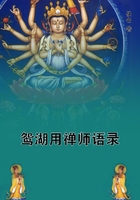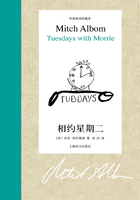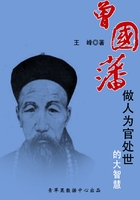On the other hand, no intelligent manager would hope to obtain in any full measure the initiative of his workmen unless he felt that he was giving them something more than they usually receive from their employers.Only those among the readers of this paper who have been managers or who have worked themselves at a trade realize how far the average workman falls short of giving his employer his full initiative.It is well within the mark to state that in nineteen out of twenty industrial establishments the workmen believe it to be directly against their interests to give their employers their best initiative, and that instead of working hard to do the largest possible amount of work and the best quality of work for their employers, they deliberately work as slowly as they dare while they at the same time try to make those over them believe that they are working fast.(1*)The writer repeats, therefore, that in order to have any hope of obtaining the initiative of his workmen the manager must give some special incentive to his men beyond that which is given to the average of the trade.This incentive can be given in several different ways, as, for example, the hope of rapid promotion or advancement; higher wages, either in the form of generous piecework prices or of a premium or bonus of some kind for good and rapid work; shorter hours of labor; better surroundings and working conditions than are ordinarily given, etc., and, above all, this special incentive should be accompanied by that personal consideration for, and friendly contact with, his workmen which comes only from a genuine and kindly interest in the welfare of those under him.It is only by giving a special inducement or "incentive" of this kind that the employer can hope even approximately to get the "initiative" of his workmen.Under the ordinary type of management the necessity for offering the workman a special inducement has come to be so generally recognized that a large proportion of those most interested in the subject look upon the adoption of some one of the modern schemes for paying men (such as piece work, the premium plan, or the bonus plan, for instance) as practically the whole system of management.Under scientific management, however, the particular pay system which is adopted is merely one of the subordinate elements.
Broadly speaking, then, the best type of management in ordinary use may be defined as management in which the workmen give their best initiative and in return receive some special incentive from their employers.This type of management will be referred to as the management of "initiative and incentive" in contradistinction to scientific management, or task management, with which it is to be compared.
The writer hopes that the management of "initiative and incentive" will be recognized as representing the best type in ordinary use, and in fact he believes that it will be hard to persuade the average manager that anything better exists in the whole field than this type.The task which the writer has before him, then, is the difficult one of trying to prove in a thoroughly convincing way that there is another type of management which is not only better but overwhelmingly better than the management of "initiative and incentive."The universal prejudice in favor of the management of "initiative and incentive" is so strong that no mere theoretical advantages which can be pointed out will be likely to convince the average manager that any other system is better.It will be upon a series of practical illustrations of the actual working of the two systems that the writer will depend in his efforts to prove that scientific management is so greatly superior to other types.Certain elementary principles, a certain philosophy, will however be recognized as the essence of that which is being illustrated in all of the practical examples which will be given.And the broad principles in which the scientific system differs from the ordinary or "rule-of-thumb" system are so simple in their nature that it seems desirable to describe them before starting with the illustrations.
Under the old type of management success depends almost entirely upon getting the "initiative" of the workmen, and it is indeed a rare case in which this initiative is really attained.Under scientific management the "initiative" of the workmen (that is, their hard work, their good-will, and their ingenuity) is obtained with absolute uniformity and to a greater extent than is possible under the old system; and in addition to this improvement on the part of the men, the managers assume new burdens, new duties, and responsibilities never dreamed of in the past.The managers assume, for instance, the burden of gathering together all of the traditional knowledge which in the past has been possessed by the workmen and then of classifying, tabulating, and reducing this knowledge to rules, laws, and formulæ which are immensely helpful to the workmen in doing their daily work.In addition to developing a science in this way, the management take on three other types of duties which involve new and heavy burdens for themselves.
These new duties are grouped under four heads:
First.They develop a science for each element of a man's work, which replaces the old rule-of-thumb method.
Second.They scientifically select and then train, teach, and develop the workman, whereas in the past he chose his own work and trained himself as best he could.
Third.They heartily cooperate with the men so as to insure all of the work being done in accordance with the principles of the science which has been developed.
Fourth.There is an almost equal division of the work and the responsibility between the management and the workmen.The management take over all work for which they are better fitted than the workmen, while in the past almost all of the work and the greater part of the responsibility were thrown upon the men.















